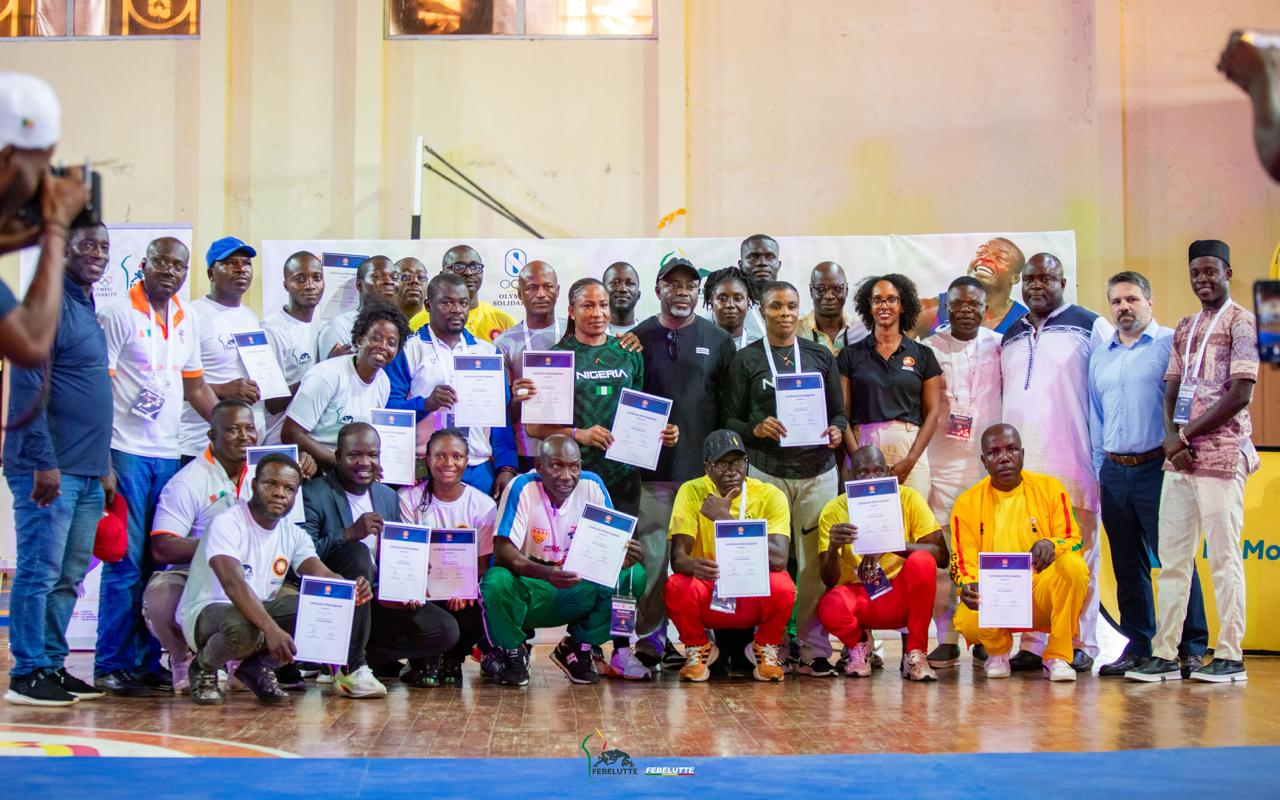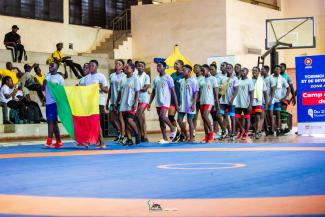OUIDAH, Benin (December 20) -- United World Wrestling (UWW), in collaboration with the Benin Wrestling Federation, the Benin National Olympic Committee and the national sports authorities, successfully organized the Regional Education and Development Wrestling Tournament (REDT), which took place in Ouidah from November 23 to 30, 2025.
This event represents the first tournament ever organized in West Africa, marking a major milestone in UWW’s wrestling development strategy on the African continent.
Ten countries from the West African region took part in the tournament, contributing to a framework of technical and educational exchanges aimed at enhancing the competencies of wrestling stakeholders.
Deqa NIAMKEY, Director of Development at United World Wrestling, paid an official visit to Benin. She praised the progress achieved by the Benin Wrestling Federation and recalled the core objective of the REDT program.
"The REDT was initiated by United World Wrestling to support countries in the sustainable development of wrestling.”
Niamkey also conducted a sports administration education session with representatives of national federations, while Youssef BOUAZIZ delivered an online training session on ARENA.

Ahead of the competitions, a regional coaches’ education program was conducted from November 24 to 27, 2025, bringing together coaches, referees, athletes and technical staff from Benin, Côte d’Ivoire, The Gambia, Sierra Leone, Ghana, Guinea, Guinea-Bissau, Burkina Faso, Nigeria and Senegal.
This program was delivered by Vincent AKA, UWW Expert and Development Officer, and concluded with theoretical and practical evaluations leading to the award of UWW International Coaching Certifications Levels 1 and 2.
Celestin PAVELESCU, UWW Expert, led the refereeing education program in Olympic Wrestling and Beach Wrestling, contributing to the improvement of technical standards and the harmonization of officiating practices across the region.
The competitions were held on November 29, 2025 at the IRSP Gymnasium, while the Beach Wrestling events took place on November 30, 2025 at the Door of No Return Beach, an emblematic site of Ouidah’s historical and cultural heritage.
The host nation particularly distinguished itself during this edition, winning a total of 35 medals (11 gold, 15 silver and 9 bronze).
The development strategy focused on youth and the introduction of wrestling in the school environment, with a strong representation of U17 wrestlers, illustrates the long-term vision pursued by the Benin Wrestling Federation.
At the conclusion of the competition, the President of the Benin Wrestling Federation, Adihunkpéto YVES AZIFAN, congratulated all wrestlers and coaches, while reaffirming the federation’s commitment to position Benin sustainably among the leading nations of African and international wrestling.




Share your thoughts.
Comments